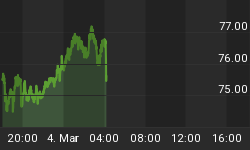BusinessWeek reported on July27, that Corporate Debt Was All Dressed Up, Nowhere to Go.
More than $90 billion in high-yield corporate bonds are waiting to get syndicated from banks to institutional investors, the by-product of a long boom in leveraged buyouts. That record six-month inventory of loans is about twice the typical backlog, corporate finance experts say. The problem? No buyers.
The lack of new credit stems from a daily drop in prices in the secondary market, Sparks says. Investors aren't willing to buy something that's likely to be cheaper the next day. Another investor agreed. "Anybody who has bought credit recently has seen it trade down, so people are reluctant to try and catch the falling knife," says Dean Kehler, founder and managing partner at Trimaran Capital Advisors. "The way it feels now, if you wait it's going to be cheaper tomorrow."
A few months ago, it often looked as if the LBO boom would never end. Now it's hard to imagine that risk-laden environment returning anytime soon.
Read that last sentence again. Sentiment can and does change on a dime. We saw it with housing and now we are seeing it again with LBOs and debt financings.
And by the way it was not "a few months ago" that bullish LBO sentiment was stong. It was a few weeks ago. More precisely July 10, 2007. See Quotes of the Day / Top Call.
Chuck Prince - Citigroup Ceo
No End Soon to Buyout Boom: "When the music stops, in terms of liquidity, things will be complicated. But as long as the music is playing, you've got to get up and dance. We're still dancing".
No end to the buyout boom huh? No end? Really?
On August 10, Reuters is reporting US firms ready to unload blns of debt if market calms.
Companies sold roughly $15 billion of new corporate bonds on Wednesday after weeks of inactivity as worries about the spreading subprime mortgage meltdown lifted. But companies largely retreated as credit concerns returned to roil global financial markets on Thursday and Friday.
Under normal circumstances, U.S. companies would be tapping buyers for $10 billion to $20 billion of cash a week.
Instead, a backlog of debt deals is developing. Roughly $100 billion of investment-grade bond supply is waiting in the wings, while $300 billion could arrive before the end of the year, according to Sid Bakst, portfolio manager at Weiss, Peck and Greer in New York.
Corporations are also avoiding launching new high-yield or leveraged loan deals, and it is very possible no loans will be sold next week, according to Reuters Loan Pricing Corp.
Note that is $100 billion of "investment" grade debt. How much junk is waiting in the wings? I have no answer for that question but any junk debt that needs to roll over soon is clearly in trouble.
And the next question is: Who really believes those "investment grade" ratings? Does anyone trust the S&P, Moody's, or Fitch to provide accurate ratings? How could they will all these disasters in mortgage debt ratings. How could they with these disclaimers?
S&P: "Any user of the information contained herein should not rely on any credit rating or other opinion contained herein in making any investment decision."
Moody's: "Moody's has no obligation to perform, and does not perform, due diligence."
If investors are reluctant to trust Moody's, Fitch, or the S&P why would they want to buy debt? Equally important, if not even more important is the question: why should investors be willing to buy something that's likely to be cheaper tomorrow?
In the meantime the debt backs up. Is the Fed going to buy it all? I think not. And let's revisit Will Rate Cuts Save The Economy?
Some are slower than others, but by now everyone (including Cramer and the Fed) should be realizing that it was the Fed's miracle financing that caused the corporate malinvestments, overcapacity, and consumer debt hangover problems we now face. Miracle financing caused the problems, so miracle financing sure won't be the cure. The miracles have now run out and the party is over regardless of what the Fed does or does not do. It's as simple as that.
And if banks are extremely unwilling to lend money right now, what makes anyone think banks would be willing to lend more money after a measly 25 or 50 basis point cut in an economy that is clearly slowing rapidly?
Yet the talking heads say "inflation is the Fed's big worry", "corporate profits will strengthen", and "the economy is strong". If inflation was the concern, and the economy was strong we would not be hearing Bush administration clowns repeating that mantra every other day, and we sure as heck would not be seeing $100 billion backups in bonds or unprecedented actions by central bankers worldwide to provide liquidity. Actions are clearly speaking louder than words.















